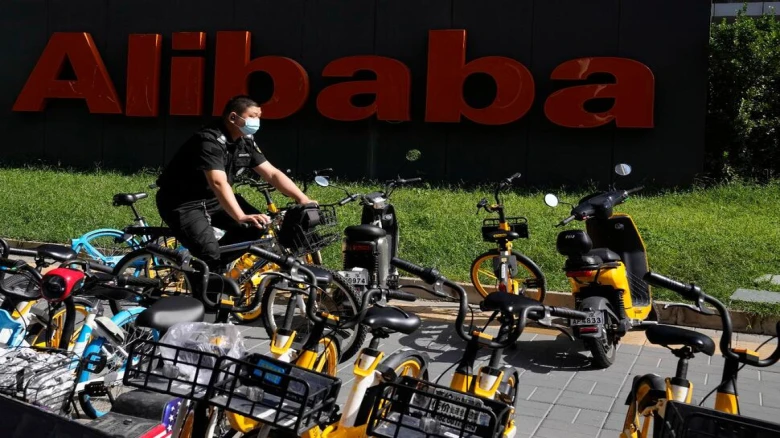Regional

Stock prices in Hong Kong and Shanghai have frequently been affected by a broad crackdown on the technology industry, but recent advances have been fueled by indications that the authorities may be loosening up.
color:black;mso-themecolor:text1">
color:black;mso-themecolor:text1">Digital Desk: After Chinese regulators
penalised their subsidiaries for failing to disclose transactions and follow
anti-monopoly laws, shares of Chinese technology companies Alibaba and Tencent
plummeted dramatically on Monday.
Shares
of social media and gaming business Tencent Holdings dropped 3.2 percent while those
of e-commerce behemoth Alibaba slumped 6.8 percent in Hong Kong. The Hang Seng
index dropped by 3%.
A list of 28 transactions that broke
anti-monopoly laws was issued on Sunday by China's State Administration for
Market Regulation.
It comprised 12 Tencent transactions and 5
transactions from Alibaba. Stock prices in Hong Kong and Shanghai have
frequently been affected by an extensive crackdown on the technology sector.
The maximum penalties for each infraction was 500,000 yuan ($74,500).
Stock prices in Hong Kong and Shanghai have
frequently been affected by a broad crackdown on the technology industry, but
recent advances have been fueled by indications that the authorities may be
loosening up.
Prior to Monday's falls, the shares of
Tencent and Alibaba had both increased by 18% and 70%, respectively, since the
middle of March.
"The decline is probably only
transitory. The market was more cautious due to the U.S. quickly rising
interest rates, but it has now been overwhelmed by the increased fines, according
to Hong Kong investment manager and seasoned market observer Francis Lun.
Investor mood was also affected by a rise in
coronavirus infections that stoked worries about more pandemic lockdowns in
Shanghai, he claimed.
Leave A Comment